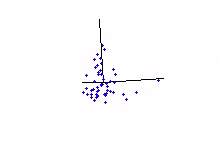


For Questions, Problems, or Progress Reports, E-Mail Dr. Osborne
ozpk@earthlink.net
Professor/Project Mentor: Chad C. Osborne
Phone: (805) 687-3488 [Santa Barbara, CA]
What a scary word, "Thesis." Think about some of the fears and resistance that "thesis" brings up. A principal aim of the course is to give you an experience in doing Action Research that will change your feelings about research and open a number of windows and doors for you, both personally and professionally.
Research in the social sciences (including Education) faces a major problem in applying experimental methods to studies. The subjects are too complex, too random, and too individual to allow precise, scientific measurement. The preferred solution to this problem has been to adapt ethnographic techniques of cultural anthropology, and use "Action Research" to deal with the complexity and interactive effects among students, teachers, curriculum, school policies, social and other factors, etc.
Your Action Research Project/Thesis will concern some aspect of your work with students, something that bears both personal and professional importance for you. You may consider prior graduate course work, particularly the previous research course you took, to develop ideas. Brainstorming and Journal writing will tap your intuitive wisdom of what would be right for you.
Reading,
Brainstorming, Journal Writing,
Internet Sites and Searches from course site
Sharing questions and responses,
Review of relevant literature,
Peer collaboration,
And e-mail consultations
COURSE TEXT: TEACHERS DOING RESEARCH, 2nd ed. by Burnaford, et al.
ASSESSMENT: Journal/ Portfolio of Sites You Reprint/Consultation = 40%
Thesis = 60%
Marshall McLuhan said, "We shape our tools; thereafter, our tools shape us." Have video and computer games, e-mail and cell phones, MTV and the Internet re-shaped student learning styles? Two articles suggesting such shaping has taken place are
DIGITAL LEARNING: Why Tommorow's Schools Must Learn To Let Go of the Pastand TWITCH SPEED: Reaching Younger Workers Who think Differently.
Part 2:
Given these unexamined assumptions, and the influence they have in current society, is it any wonder that we have growing movements in
Homeschooling and
To the degree that your project or plans contradict any of these unexamined beliefs, implementation may require sustained and innovative counter measures.

